
‘Afraid of the water’? Life in a city that dumps billions of litres of raw sewage into lakes and rivers
10 billion litres of sewage are dumped into Winnipeg’s lakes and rivers each year. Some...
The notices usually pour in on Sunday.
One by one, they pile up in the email inbox of Cat Lake First Nation Chief Russell Wesley, each one about a mining claim someone has staked on his community’s territory. Sometimes, he receives up to 20 in a single day.
As the nation’s main point of contact for mining companies, ideally he’d be able to review them — make sure that if prospectors were to come in and start searching for minerals on the sites, the claims wouldn’t overlap with sites that are culturally important to Cat Lake or used by members of the remote, fly-in community in northwestern Ontario for hunting or gathering medicines. But most of the time, there just aren’t enough hours in the day. Especially when the nation, also known as Bizhiw-zaaga’iganiing Nitam Anishinaabeg, is also coping with multiple emergencies at once, like mental health crises, a housing shortage and unseasonably warm temperatures that have kept the community’s winter road from opening to bring in essential goods.
“There could be hundreds of reasons why I couldn’t review all of those emails,” Wesley told The Narwhal.
The deluge of new mining claims has continued even though Cat Lake First Nation’s band council passed a resolution in September banning any mining activity on its territory. It’s a problem other chiefs and other nations are facing as well — even if they’re open to working with mining companies, there are just too many claims coming in and not enough resources and staff to keep up.
Now, the Chiefs of Ontario — a group representing all 133 First Nations in the province — are calling for the province to put a 365-day pause on mining claims, saying the Ontario government has allowed an “extreme” and “exponential” rise in encroachment on their land without their consent. Some communities have seen claims increase by as much as 30 per cent over the last year, the Chiefs of Ontario said, a spike driven in large part by the relatively new ability to make claims online.
“Mining claim staking continues to grow at a pace that far outstrips the ability for First Nations to respond and directly impacts our inherent, treaty, and constitutionally protected rights,” Ontario Regional Chief Glen Hare said in a statement released Wednesday.
The call follows a resolution passed in November by the group’s assembly of chiefs, which directed Hare to declare the year-long moratorium to Premier Doug Ford and Mining Minister George Pirie. The resolution also called on the Chiefs of Ontario to do a detailed review of the existing mining claims system, its impact on First Nations communities and implications for Treaty Rights, and to develop a mining strategy with recommendations for long-term solutions.
In his statement, Hare also said he’s aware that different nations have varying views on resource extraction on their lands.
“This moratorium is not intended to, in any way, impede on those who are currently or wish to undertake activities that will bolster economic development in their territories,” Hare said.
The call from the Chiefs of Ontario comes as the province is looking to make Ontario a hotspot for new mines, especially those that would produce minerals in high demand for clean technologies like electric vehicles. The province is funneling funding into mining exploration companies and seeking to approve new projects faster, passing legislation like last year’s Building More Mines Act.
First Nations, meanwhile, receive little help to respond to the new mining claims, and applications are flooding in. There is a provincial program nations can apply to for funding to participate in the mining process, but none of its five streams are meant to be used for mineral claims.
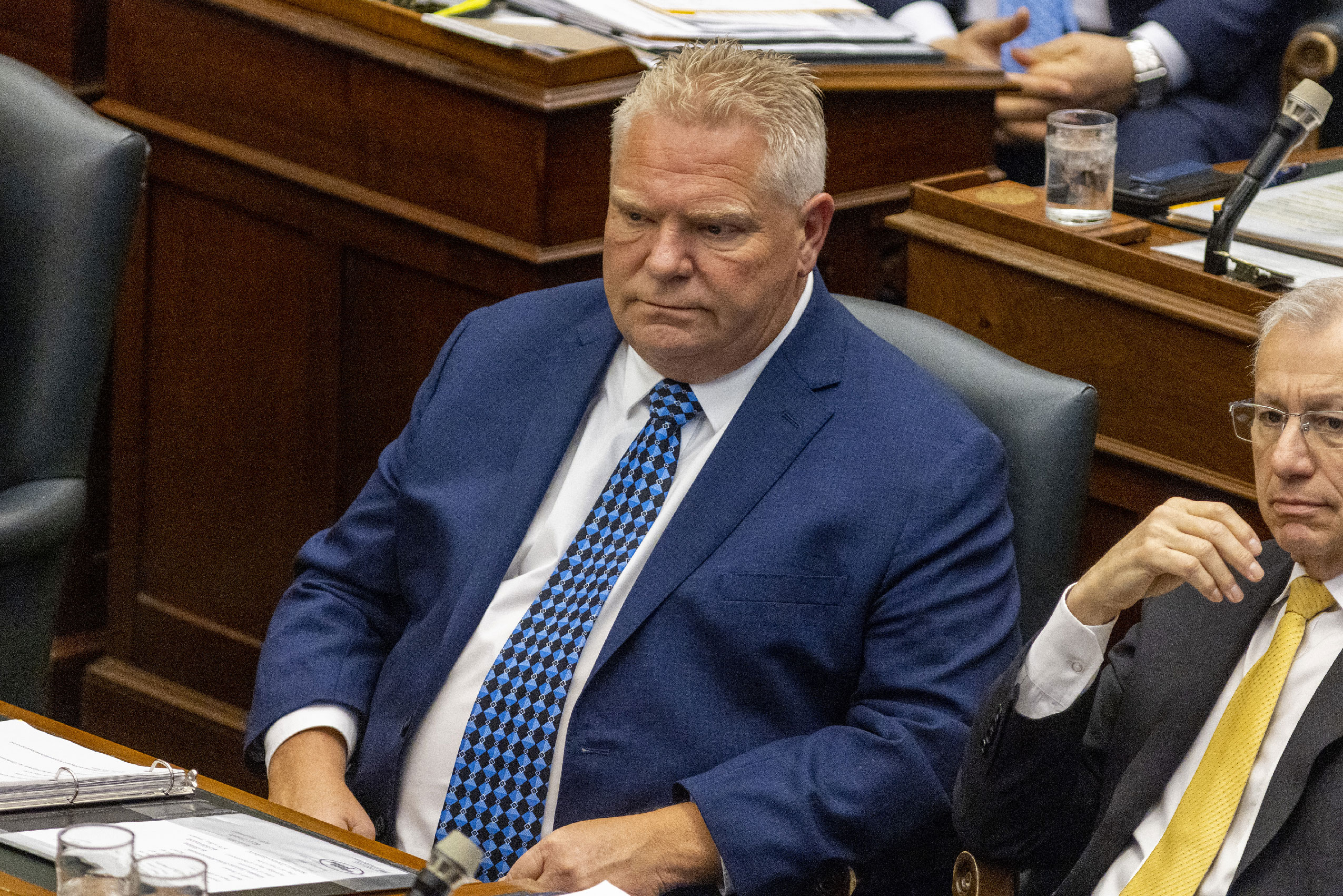
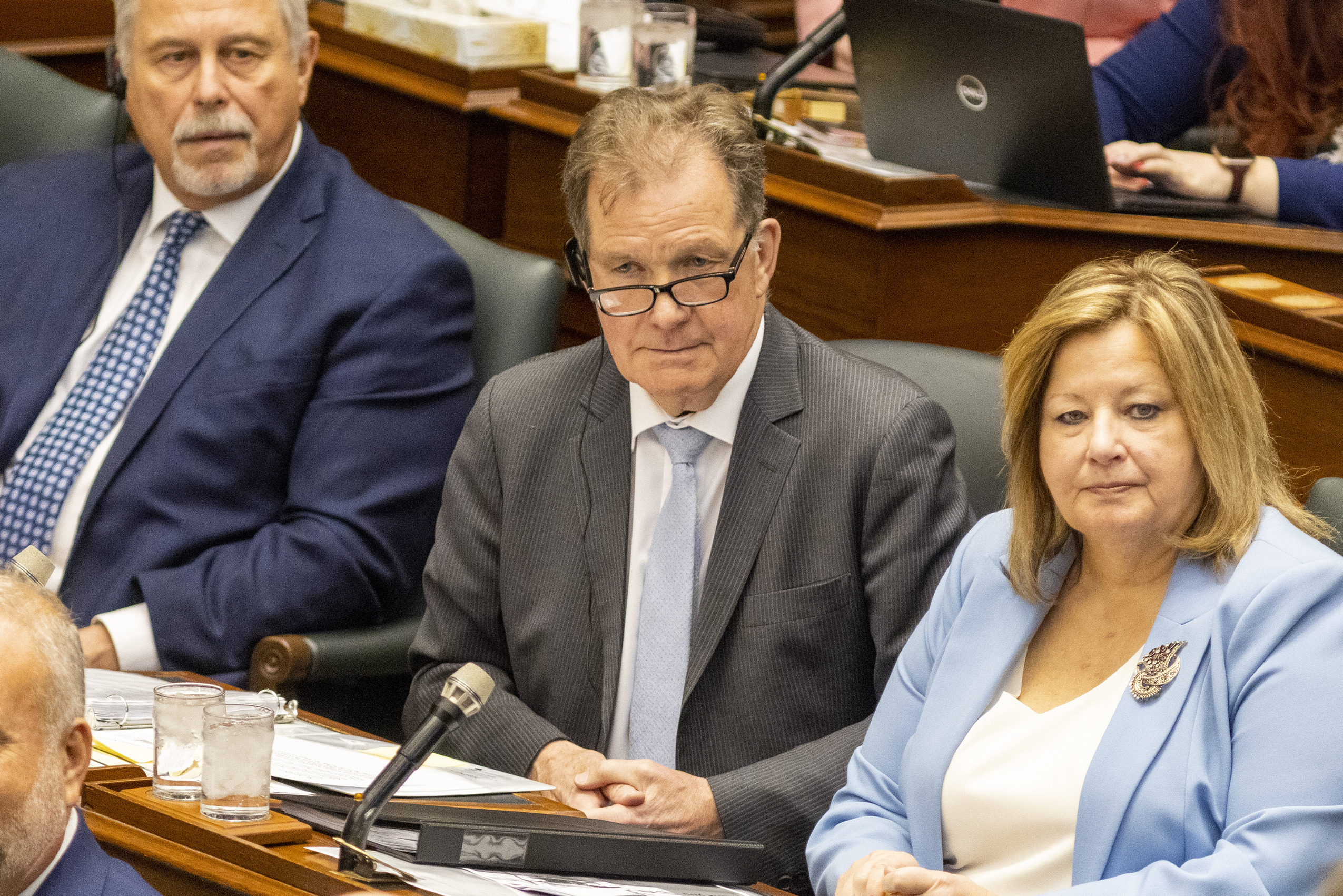
In Ontario and many other jurisdictions, mining rights are different from land ownership rights. Even on some private properties, the province asserts that it owns the minerals beneath the surface and controls the rights to explore for ore or mine there. Companies and people can get those rights by staking a claim.
When you imagine what that process looks like, you probably see a prospector hiking out into the bush and driving a physical stake into the ground. In Ontario, it did work that way until pretty recently. But in 2018, the province switched to a new online system called the Mining Lands Administration System, or MLAS, which allows pretty much anyone to get a prospector’s licence and make a claim for a small fee. You can do it any time in a matter of clicks — in the resolution, the Chiefs of Ontario call the process “invisible virtual mining.” The system was designed by the previous Liberal government and rolled out just before Doug Ford became premier.
People and companies who stake claims using Ontario’s online system don’t have to live in Canada. They’re not required to have visited the property they’re securing rights to. They also don’t have to consult the First Nation whose territory it sits on before staking a claim — and the province doesn’t automatically inform nations when a claim has been made or tell prospectors whether they’re staking a claim to First Nations’ land. For many communities, that has meant a rush of claims they have little capacity to keep track of or give feedback on. A similar system in British Columbia has caused parallel problems, leading to a landmark court decision this year that means the province will have to overhaul it to include Indigenous consultation.
Most mineral claims never become mines. But even if they don’t, they can be disruptive: a claim allows the prospector to explore whether there are minerals on the site, which can mean clearing trees from the land or seeking permits to drill for samples. This disrupts the land community members use for harvesting, recreation or cultural practices, even if the area was part of a land settlement negotiated with a government.
Some Indigenous communities have long held that the system clashes with treaty promises, something the Chiefs of Ontario resolution outlined as well.
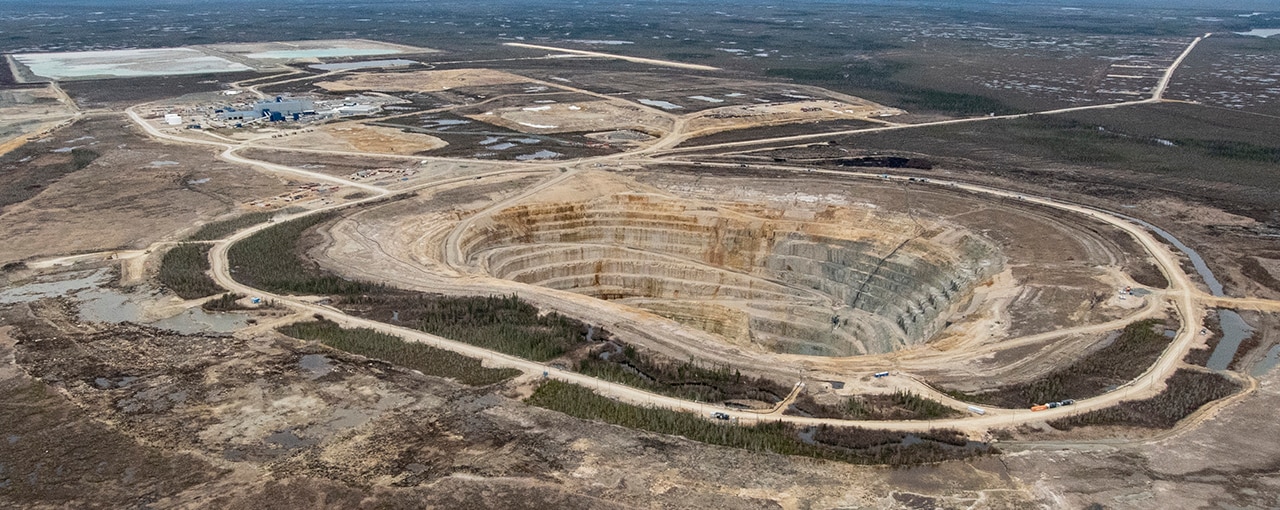
“The invisible virtual mining process in Ontario compromises and impacts the spirit and intent of all treaties and unceded territories in Ontario,” the resolution reads.
Different treaties contained different guarantees — for example, the Robinson Huron Treaty of 1850 that covers the northern shore of Lake Huron outlined how settlers and Indigenous nations would share the land, and the revenues of resource extraction. Canada did not hold up its end of the agreement, and Canada and Ontario are now set to pay a combined $10-billion settlement to the nations that signed the treaty, which is set to be finalized this year.
In Treaty 9, which covers a vast stretch of Ontario near James Bay, Crown negotiators verbally promised nations they would have the right to use their lands as they always had, but added a line in English — a language the nations’ representatives didn’t know — to allow resource extraction, among other things. Canadian courts have affirmed the verbal promises in the treaties are binding, but governments routinely fail to uphold them anyway.
When it comes to mining claims in Ontario, a lack of consultation with First Nations has been a repeated problem. Some communities have been raising red flags for years about claims filed without their knowledge or consent.
The Anishinabek Nation, a group representing 39 First Nations around the Great Lakes, also asked the Ontario government to declare a moratorium on new mining claims in 2022. The provincial ministry of mines did not comply, the Chiefs of Ontario said Wednesday.
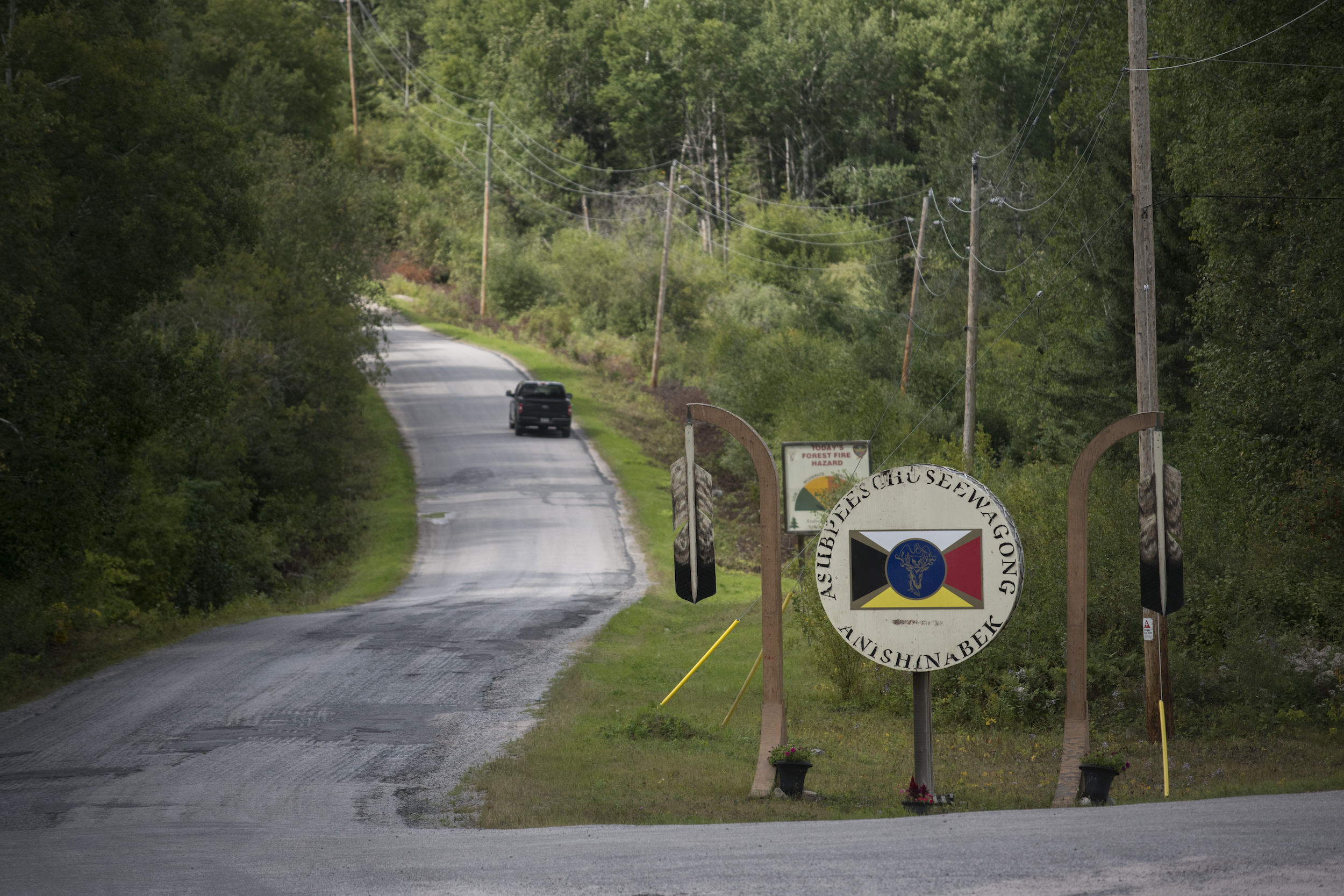
In northwestern Ontario, Grassy Narrows First Nation, or Asubpeeschoseewagong Anishinabek, has recorded 6,000 mining claims on its lands since the province launched the online system in 2018. The nation has good reason to be wary of industry, as its residents have long dealt with health problems caused by persistent mercury contamination from a former paper mill. The mining claims are within an Indigenous Protected and Conserved Area the nation has been working to steward, and were made despite Grassy Narrows declaring a moratorium on industrial activity on its territory in 2007.
“Since Ontario brought in online staking, and Premier Ford rolled out the red carpet for industry, it has been like free entry on steroids,” Grassy Narrows land protection lead Joseph Fobister said in a statement.
“We used to at least be able to see someone coming onto our land to stake. Now they can do it from their office thousands of miles away without ever setting foot here. Often the companies tell us later that they wish they knew it was Grassy Narrows Territory and if they had known they would have stayed away.”
Many times, prospectors don’t keep the community in the loop. In one case, claims sprung up along a resident’s trapline.
“This makes our people very upset and scared that our land will be even further degraded and that we will be hurt more,” Fobister’s statement said.
“For many years we have been inviting Ontario to come to the table to resolve the land issues between us, but the ministry refuses to talk to us about anything other than proposals for more mining exploration.”
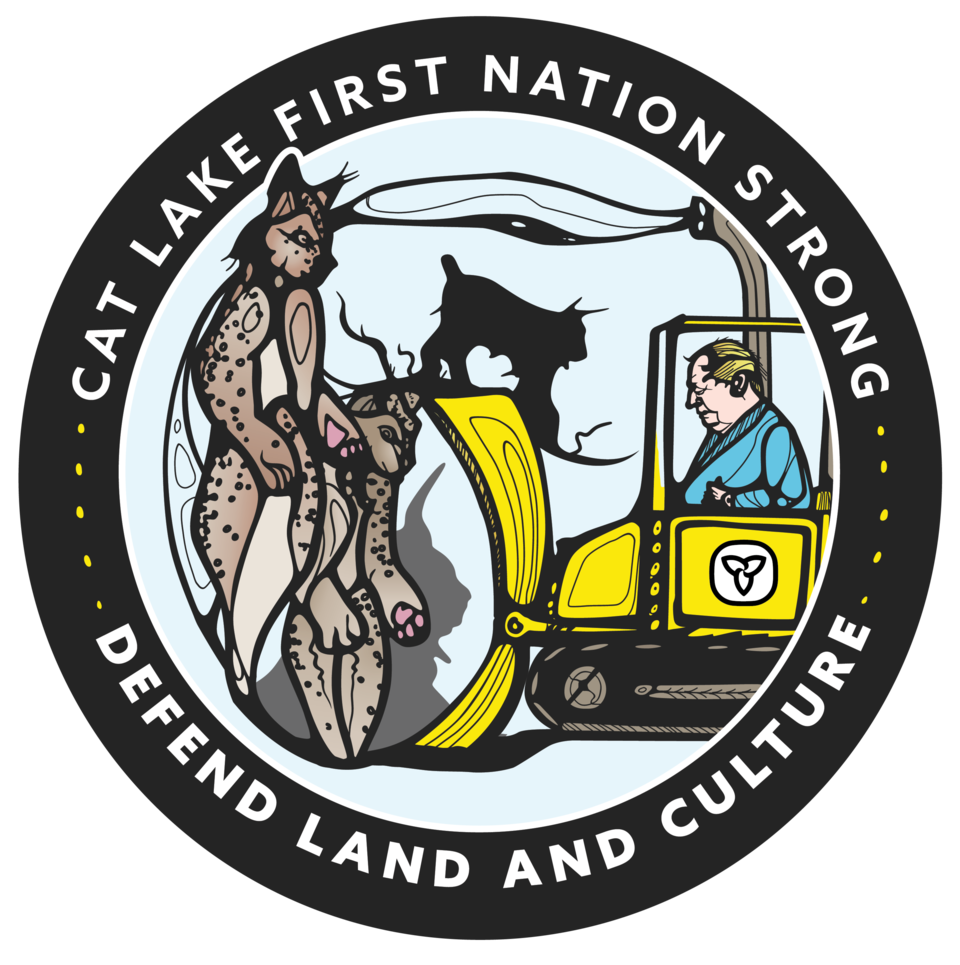
In September, Wapekeka, Neskantaga and Big Trout Lake First Nations joined Grassy Narrows in calling on the province to address their concerns about the rush of claims, making a visit to the legislature in Toronto and leading a march of residents and supporters.
“We were poisoned before and we don’t want any more poisoning to take place in our territory and especially close to the community,” Grassy Narrows Chief Rudy Turtle told the Canadian Press.
So far, the province hasn’t complied with that call, or the one from Cat Lake. Wesley told The Narwhal his biggest concern is First Mining Gold’s Springpole open mine project, which would involve draining a lake. Wesley said he’s concerned the project would affect lake trout, affecting the community’s right to fish on the only part of their territory where they can harvest the species. The Ontario government is currently considering whether to grant the company a permit to build and maintain a winter road to the project for five years.
Wesley said the province is repeatedly failing to consult with his community, putting him in the difficult position of having to butt heads with the government to protect their land and rights.
“Unfortunately, what happens is it makes us look like enemies all the time,” he said. “Because we’re always the last line of defence for anything.”
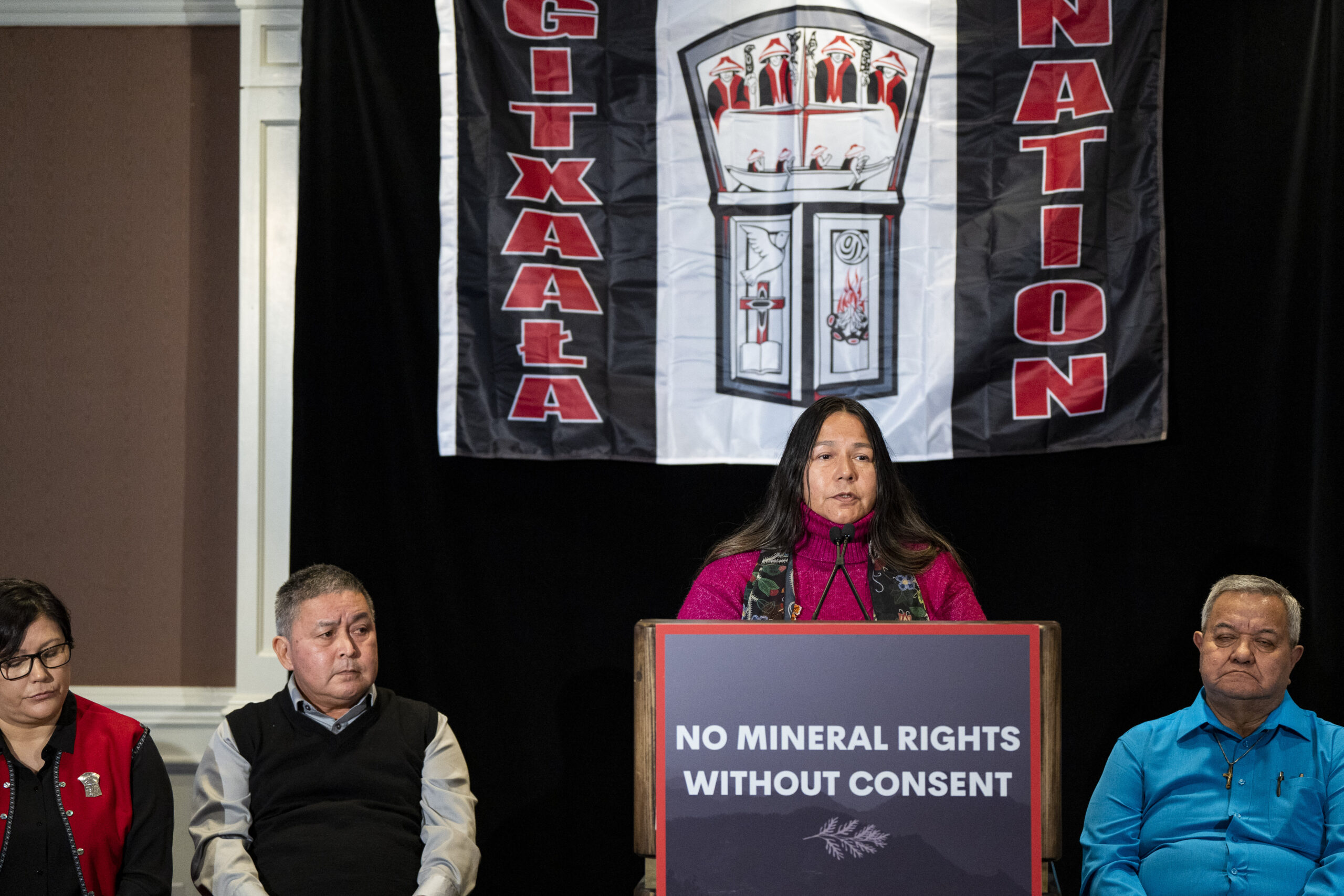
Ontario isn’t the only province to allow mineral claims to be made quickly online. British Columbia uses a similar system. In September 2023, following arguments from Gitxaała Nation and Ehattesaht First Nation, the B.C. Supreme Court ruled the system must be overhauled and First Nations must be consulted about mineral claims in their territories. The B.C. government is required to roll out a new system by early 2025. In the meantime, prospectors there are allowed to keep staking claims using the current system. Gitxaała is appealing that point, arguing the time frame for reform is too long.
“The landscape has totally changed as a result of this decision,” Gavin Smith, a lawyer representing Gitxaała previously told The Narwhal.
The B.C. decision may well have implications for nations in other provinces, too. In the resolution, the Chiefs of Ontario outlined plans to take a close look at the verdict and “develop a technical review and feasibility assessment on what legal options could look like in Ontario.”
The Gitxaała decision “sets an important precendent,” the Chiefs of Ontario said in their statement.
—With files from Fatima Syed and Francesca Fionda
Updated Jan. 24, 2024, at 2:55 p.m. ET: This story was updated to include quotes and information from the most recent version of the press release from the Chiefs of Ontario.
Get the inside scoop on The Narwhal’s environment and climate reporting by signing up for our free newsletter. On a warm September evening nearly 15...
Continue reading
10 billion litres of sewage are dumped into Winnipeg’s lakes and rivers each year. Some...

Court sides with Xatśūll First Nation, temporarily halting Mount Polley mine waste expansion

Break out the champagne: Emma’s storied life and leadership in journalism has earned her the...
